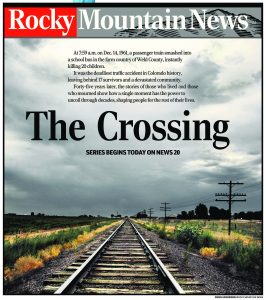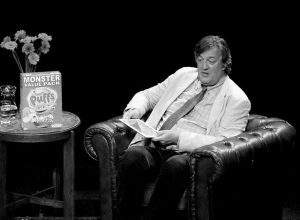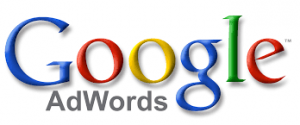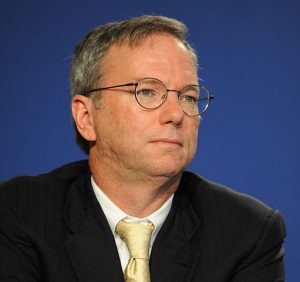Sir Tim Berners-Lee’s vision of the Web as an “open platform that would allow everyone to share information, access opportunities and collaborate across geographic and cultural boundaries” is being threatened. Berners-Lee has been calling for the protection of Net Neutrality rules in order to safeguard his vision in light of threatening moves by the Federal Communications Commission in recent times.
Tim Wu, an American lawyer and professor at Columbia, coined the term Net Neutrality in 2003, in his paper Network Neutrality, Broadband Discrimination. Net Neutrality is broadly defined as “the idea, principle or requirement that internet service providers should or must treat all Internet data as the same, regardless of its kind, source or destination.”
In a 2014 speech Barack Obama lauded the basic principles that the internet is built upon; “openness, fairness and freedom” and famously stated that there should exist “no toll roads on the information highway.”
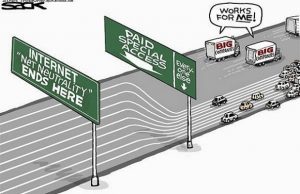
He asked the FCC to recognize that the internet has become, since its inception, an essential part of everyday communication and life, in essence, a utility, and thus should be protected by Net Neutrality, whereby Internet Service Providers (ISPs) are required to treat all data equally. 2015 saw the FCC ruling in favour of Net Neutrality by classifying broadband as a common carrier, a public utility, under Title 2 of the federal communications law.
In 2015, then-Commissioner of the FCC, Ajit Pai (a former lawyer for Verizon) detailed a number of reasons for voting against Net Neutrality rules, a majority of which have since failed to hold water. Ajit Pai has long opposed net neutrality, opining that less regulation in the arena will lead to market growth. Pai was promoted to position of Chairman of the FCC by President Donald J. Trump in January 2017 and the issue has since been raised to the forefront of extreme debate due to the revealing of a draft from the FCC which proposes removing almost every Net Neutrality rule in existence, and allowing ISPs to engage in throttling, blocking and paid prioritization. A final decision is expected at the Commission’s December 14, 2017 meeting.
In two highly entertaining and hugely informative pieces on his Last Week Tonight show in 2014 and 2017, comedian John Oliver suggests that the manner in which the US government and media report on Net Neutrality is, in many cases, deliberately bathed in endless constitutional terms and swathes of legal talk. He smartly observes “if you want to do something evil, put it inside something boring.” This diversionary tactic has turned the everyday consumer off the scent in the past but the recent wave of opposition and attention brought to the term Net Neutrality by a variety of popular figureheads via more accessible social media platforms has begun to turn the tide, engage the general public, and encourage them to argue for their rights.
The Last Week Tonight show created gofccyourself.com, a fast track site leading the public to the FCC’s public comment area where they can voice their opinion. In the short YouTube clip below, Oliver elaborates on the FCC’s seemingly deliberately complicated path towards filing public opinion on their site:
In 2014, after the airing of Oliver’s first dissection of Net Neutrality, the FCC site crashed. The second airing of his opinions on Net Neutrality, and the unveiling of gofccyourself in 2017, saw a similar event occur in regards to the FCC site, with the FCC later denying it was Oliver’s intervention that caused these coincidental glitches in their system.
Ending net neutrality is another step towards the dismantling of freedom and the spectre of controlled media. Content providers, such as Netflix, Amazon and Facebook, alongside independent activists, have aligned themselves against telecom giants such as Comcast and Verizon in this debate. By placing ISPs in the role of gatekeeper over the provision of information and data, the path of knowledge the public can pursue is hindered or channeled and thus future thought processes and developments may be curtailed and controlled. All data must be treated equally. The internet is not a perfect place, and indeed Berners-Lee had never it expected it to be so, but it is a level playing ground. FCC proposals will disrupt this and turn the democratization of the internet on its head.
With time marching on rapidly, the FCC’s determination in regards to the overruling of Net Neutrality rules seems inevitable to succeed. Tellingly, the very day after the FCC announced their plan to dismantle Net Neutrality, Internet Service Provider Comcast, the largest broadcasting and cable television company in the world, reneged on their vow to uphold net neutrality by deleting a ‘no paid prioritization’ pledge from their website. It would appear the wheels are already in motion towards realizing Ajit Pai’s and the FCC’s vision.
References
Berners-Lee, Tim. “I Invented the Web. Here are Three Things We Need to Change to Save It.” The Guardian, 12 Mar. 2017. Web. 1 Dec. 2017 www.theguardian.com/technology/2017/mar/11/tim-berners-lee-web-inventor-save-internet
Brodkin, John. “Comcast deleted Net Neutrality Pledge the same day FCC announce repeal.” Ars Technica, 29 Nov. 2017. Web. 1 Dec. 2017. arstechnica.com/tech-policy/2017/11/comcast-deleted-net-neutrality-pledge-the-same-day-fcc-announced-repeal/
“Net Neutrality: Last Week Tonight With John Oliver (HBO).” YouTube, uploaded by Last Week Tonight, 1 Jun. 2014. Web. 2 Dec 2017. www.youtube.com/watch?v=fpbOEoRrHyU
“Net Neutrality II: Last Week Tonight With John Oliver (HBO).” YouTube, uploaded by Last Week Tonight, 7 May 2017. Web. 2 Dec 2017. www.youtube.com/watch?v=92vuuZt7wak
Mechaber, Ezra. “President Obama Urges FCC to Implement Stronger Net Neutrality Rules.” Obama White House, Nov 10 2014. Web. 1 Dec. 2017 obamawhitehouse.archives.gov/blog/2014/11/10/president-obama-urges-fcc-implement-stronger-net-neutrality-rules
Solon, Olivia. “Tim Berners-Lee on the Future of the Web: “The System is Failing.”” The Guardian, Nov 16 2017. Web. 1 Dec. 2017 www.theguardian.com/technology/2017/nov/15/tim-berners-lee-world-wide-web-net-neutrality

